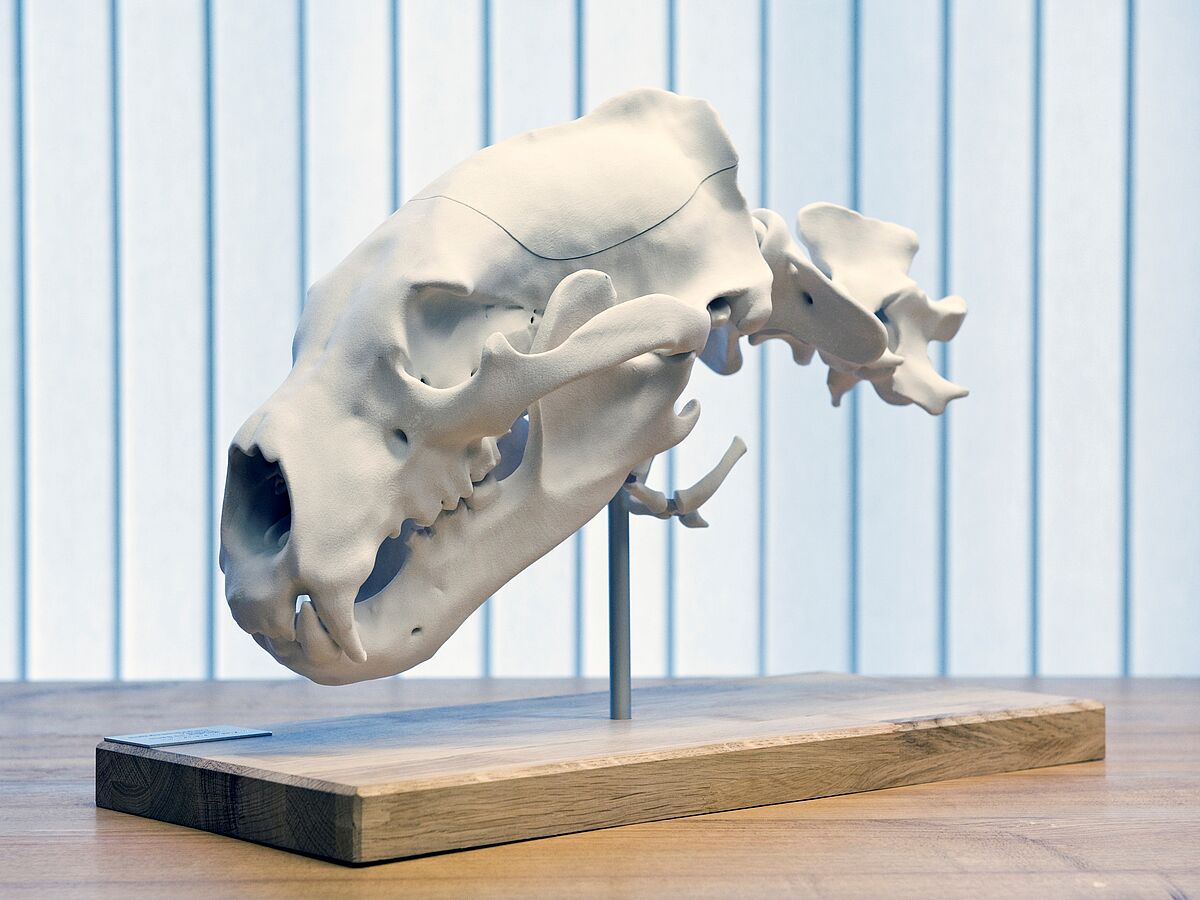A new scanning-and-prototyping technique has helped to explain why Knut, the world-famous polar bear, died suddenly in front of hundreds of shocked visitors to the Berlin Zoological Garden last month. Dr Thomas Hildebrandt and colleagues at the Leibniz Institute for Zoo and Wildlife Research (IZW) in Berlin used their bear-sized Toshiba computed tomography (CT) scanner (Science, 16 July 2010, p. 261) to scan Knut’s body. The CT was financed by the Economic Incentives Package II of the German Government through the State of Berlin (see Science, 16 July 2010, p 261 ). Then, with Prof Hartmut Schwandt, Ben Jastram and Joachim Weinhold of the Technische Universität Berlin’s 3D Lab, they used a special 3D printer to produce hyperaccurate replicas of his skull, brain, and face (pictured).
The necropsy conducted by pathologist Claudia Szentiks at IZW identified encephalitis, possibly viral, as the cause of Knut’s apparent seizure and fall into the water in his enclosure, where he drowned. The scans and models showed that the brain was structurally normal, ruling out an inborn defect and explaining why Knut showed no symptoms before his deadly collapse. “This indicated that the zoo could not have known that he was sick,” Hildebrandt says. Polar bears in the wild sometimes fight to the death, and there is likely an evolutionary advantage in hiding any symptoms of disease or other weaknesses, he says.
The researchers will now use the data from the scans to create a virtual tour of the inside of Knut.
3D-model of Knut's head.
Photo:TU-Pressestelle/Ruta
Source: Science vol 332, p 157
Contact:
| Dr. Thomas Hildebrandt, Leibniz Institute for Zoo and Wildlife Research, Tel.:0049 (0)30- 5168 220, hildebrandizw-berlin.de www.izw-berlin.de |



